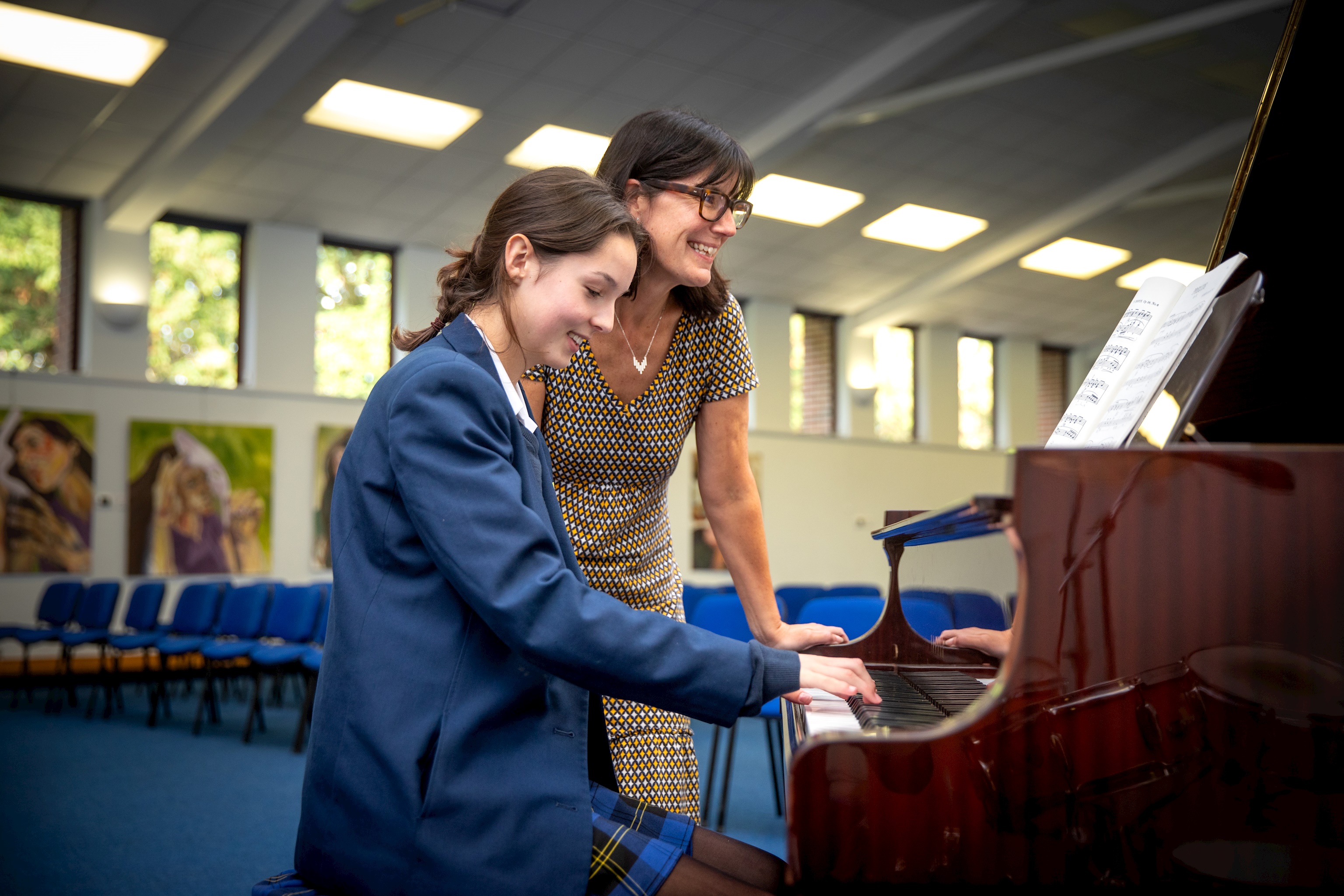St Edward’s School welcomes children from all over the world. There are children at the School from a range of countries, such as:
- USA
- Canada
- Australia
- France
- Spain
- Italy
- India
- South Africa
- China
- Germany
We pride ourselves on being able to absorb children from different curricular and cultural backgrounds and they enrich our school community. Children who come to the School with no English receive extra lessons in the English language, but we find that with total immersion in school life their English develops rapidly.
St Edward's also have a dedicated teacher who has responsibility for international pupils to support them in settling into school life and to oversee their progress with their English language development.
International Entry
Senior School International Admissions Entry
For entry into the Senior School, assessment papers can be sent to their current school for invigilation and return to us for marking. Following this a formal offer of a place can usually be made.
Additional International Admissions Entry Information
Some pupils may require a Tier 4 Student Visa in order to be able to study in the UK. While it is the responsibility of parents to determine whether or not their child needs such a visa (and to apply for it), the School’s Admissions Manager will be happy to provide the required Certificate of Acceptance for Study (CAS) to enable parents to do this, once a place has been formally accepted. The CAS is issued, on request, in the Summer Term prior to entry and can be used by parents when making a visa application.
Further details regarding visas and entry into the UK may be obtained from Gov.uk/Visas-Immigration.
As immigration and visa rules can be quite complex, we do encourage parents to read this thoroughly if they suspect that a visa might be required.
The School’s Admissions Team is responsible for all aspects of registration, entry, and CAS procedures. We are always happy to assist with any questions:
- Call: +44 (0)1242 388555
- Email: [email protected]
If you are interested in studying at St Edward’s School, please get in touch and you can start on the path to the next exciting phase of your education!
In common with pupils from the UK, international pupils whose parents are not residents in the UK are asked to have a legal guardian resident in the UK. We operate principally with one major educational agent, but some pupils prefer to work with another arrangement and have their own guardians. Guardians have an important role to play in the life of an international pupil and it is an important choice to make. A guardian acts ‘in loco parentis’ and as such, ensures that all of our overseas pupils are well looked after whilst they are in the UK. Guardians will need to assist with such things as providing accommodation and travel arrangements as well as, should the need arise, emergencies.
A good guardian goes beyond this however, providing a service to both the pupil and the School by taking a genuine interest in pupil welfare and liaising regularly with the School. This ensures that pupils get the most out of their education and their time in the UK. It also ensures that overseas parents can feel confident that their child is always safe and well cared for during their time in the UK. Guardians may be friends or family who are happy to do this.
Alternatively, they may be a third party approved by a recognised agency and DBS checked. In all cases, they must be over 25 years of age and resident in the UK.
International Courses
Short Stay Courses of varying length are possible at St Edward’s. Pupils are welcome to stay for one, two or three terms and follow as closely as possible the curriculum of the Year Group that they are entering. For some, total immersion may be possible.
For others whose level of English may prevent them from accessing all subjects, there may need to be a small reduction in the number of lessons to enable them to take additional English (EAL) lessons.
EAL lessons serve to boost a pupils’ abilities in all skills and to offer additional help with their classwork. In Year 10, pupils may, if they wish, be prepared for the PET English examination.
A 1-Year Course is possible in Year 11 for pupils who wish to sit a limited number of GCSEs and improve their level of English through EAL, with the possibility of entry into Year 12 the following year if they so wish.
Pre-A Level courses are for pupils of 16 years of age who require significant extra English input through EAL to enable them to have the best chance of succeeding at A level in Year 13. A Pre-A Level student has all the privileges of the Year 12 and 13 pupils, including the uniform, but will not start A level courses fully.
A curriculum is devised which is tailored to the need of the pupil, enabling him/her to sit a GCSE examinations and access some Year 12 courses and facilities, with the view to starting the full A level courses the following September.
Our main requirement is that all pupils join us with a good enough command of the English language to be able to access the curriculum from the outset. Our curriculum is, however, flexible enough to enable us to cater for those pupils whose English needs additional support for them to reach their full academic potential.
The EAL department helps such pupils to develop both their English language skills and, just as importantly, their confidence. EAL support takes place in small groups as well as in individual lessons and is tailored to address each individual’s needs and areas of weakness. We develop each of the main skill areas – speaking, reading, writing and listening, whilst also helping pupils to understand specific subject-based terminology and language. Individual subject support, study skills and examination techniques are also included in EAL lessons.
In Years 10 and 11, up to the age of 16, international pupils follow the GCSE curriculum. In the Sixth Form, up to the age of 18, they follow the British A level curriculum, taking four subjects – one of which they normally discontinue at the end of Year 12. However, for some pupils from abroad, it may be best to start with three subjects and spend additional time improving their level of English in preparation for the important IELTS examination taken in Year 13.
This examination acts as proof of English language competence for universities and they usually make offers of places conditional upon good academic results together with a good IELTS score. In addition to the usual public examinations, we offer specific preparation for the IELTS examination and, for some Year 11 students, the Cambridge ESL IGCSE examination. Teaching for the PET examination is also offered.














